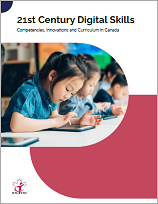
electronic resource
|
21st century digital skills : competencies, innovations and curriculum in Canada
Copies
0 Total copies, 0 Copies are in,
0 Copies are out.

electronic resource
|